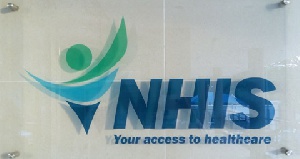 The Director said in Ghana, NCDs accounted for 31 per cent of disease burden
The Director said in Ghana, NCDs accounted for 31 per cent of disease burden
Mr Benjamin Anabila, the Director of the Institute of Leadership and Development (INSLA), has called for the inclusion of non-communicable diseases (NCDs) in the National Health Insurance Scheme (NHIS) to ensure universal coverage in the country.
He also called on Government to impose taxes or levies on unhealthy diets such as sugary drinks, salty and fatty food to enhance the funds of the NHIS.
Mr Anabila made the suggestion in an interview with the Ghana News Agency in Accra on Thursday.
He said NCDs, particularly cancer; cardiovascular diseases, diabetes, chronic respiratory diseases and mental and neurological disorders have become a burden to the country.
He said when the diseases were covered under the NHIS it would reduce inequalities in health delivery and improve the health and wellbeing of all Ghanaians.
Mr Anabila said NCDs were estimated to kill around 38 million people every year, accounting for 68 per cent of all deaths worldwide, causing half of all global disabilities, adding that, “although the burden is universal, low- and middle-income countries are hit the hardest, with over three quarters of all deaths occurring in these countries.”
As a result of the above disabilities and mortalities, the United Nations (UN) Sustainable Development Goals (SDGs) prioritized in its target 3.4 to reduce by one third premature mortality from the diseases through prevention and treatment by 2030.
The Director said in Ghana, NCDs accounted for 31 per cent of disease burden and kills an estimated 86,200 persons in the country each year with 55.5 per cent of them aged less than 70 years.
Mr Anabila said an analysis of institutional data in the country suggests that NCDs have been increasing and that the cardiovascular accounted for 8.9 per cent deaths.
He said global commitments, plans and programmes by the 2011 Political Declaration on the Prevention and Control of NCDs; World Health Organisation (WHO) Global NCD Action Plan 2013-2020; Global NCD Voluntary Targets; NCDs in the 2030 Agenda for Sustainable Development and Global Strategy on Diet, Physical Activity and Health have provided enough justifications to impose additional tax and levies on unhealthy diet specifically on sugary drinks, salty and fatty foods.
He said in compliance to the global commitments, plans and programmes, the Government of Ghana have domesticated and prioritized the preventions, control and management of NCDs.
These policies were developed by the Ministry of Health Regenerative and Nutrition Unit 2006, Ghana Shared Growth and Development Agenda (GSGDA) 2010-2017, National Health Policy (NHP) 2007, National Health Sector Medium Term Development Plan, Regenerative Health and Nutrition Programme (RHNP) Strategy Plan 2007-2011 and Disease Control Strategy 2010-2014.
Mr Anabila said the growing disease burden, citizen demand for universal health coverage and funding challenges for and on the NHIS was enormous and government must therefore adopt best practices and recommendations from public health experts and development partners to address emerging funding challenges.
He said amongst the best global, national and WHO best recommended practices in cushioning and ensuring sustainable funding to strengthen the health delivery system was to impose taxes or levies on the risk factors of unhealthy diet fuelling NCDs such as sugary drinks, fatty and salty foods.
He appealed to President Addo Dankwa Akufo-Addo, the Co-Chair of Eminent Advocates for SGDs to provide practical leadership in the attainment of the SGDs target 3.4 in the country and beyond as nations prepare for the 2018 United Nations High-Level Political forum on NCDs.
Mr Anabila said revenue generated from the tax and levy on sugary drinks, salty and fatty foods should be efficiently earmarked for specific prevention, control and management of NCDs so as to heavily reduce obesity, diabetes and tooth decay, which would further prevent and control the diseases and make an impact on healthy diets amongst the citizenry.
The INSLA is a civil society center for the strengthening of leadership capacities and the promotion of development. It is the host of the Ghana Healthy Diet Alliance, Ghana Physical Activity Network and a member of the Ghana NCD Alliance. The Ghana NCD Alliance is a coalition of NGOs advocating and providing services for the prevention, control and management of NCDs in Ghana.